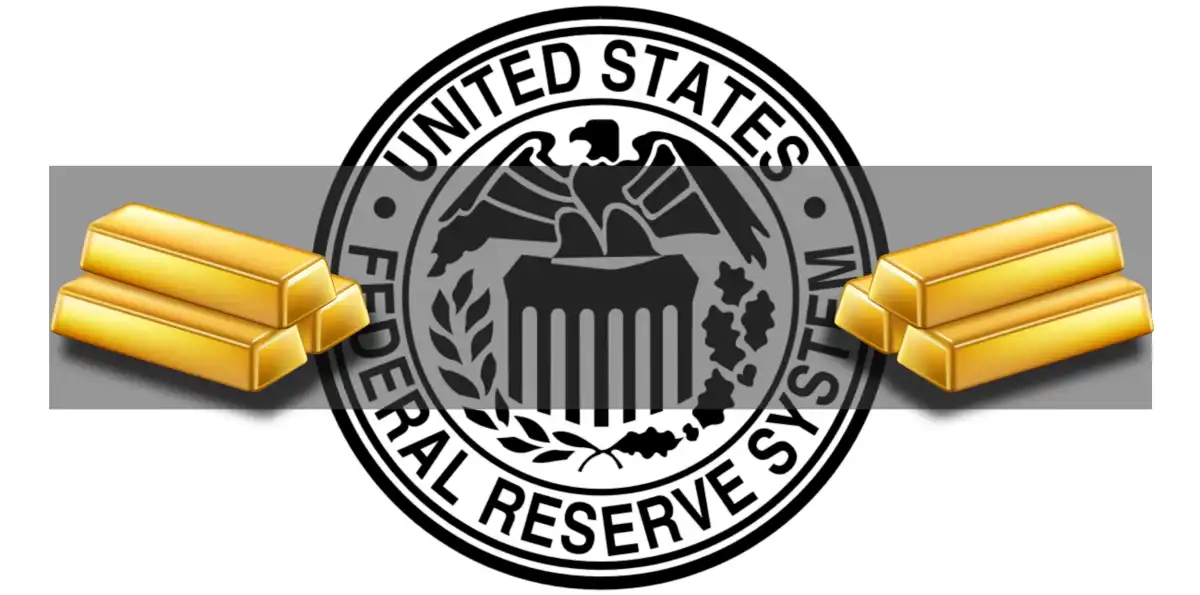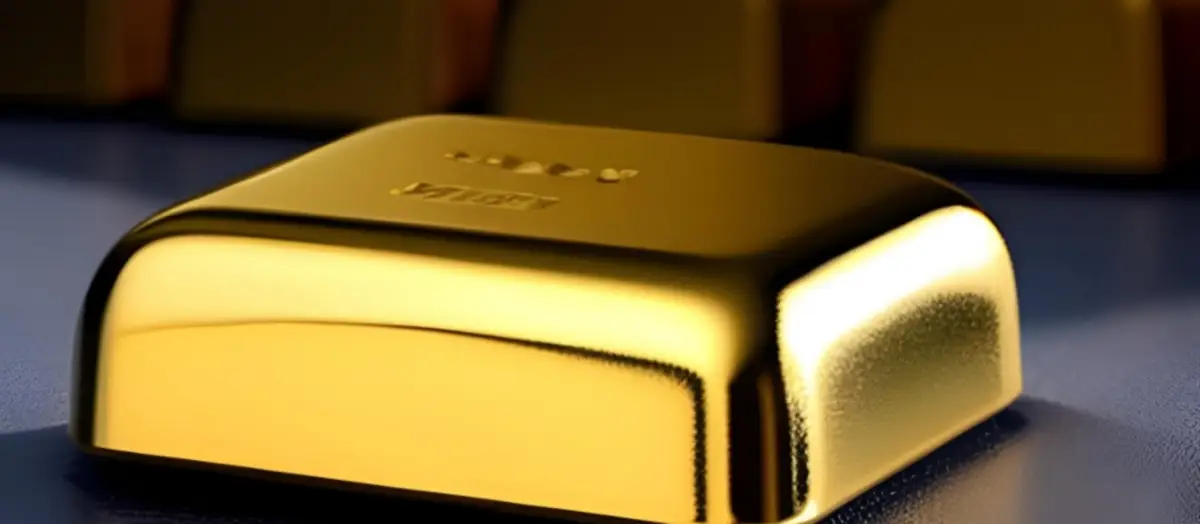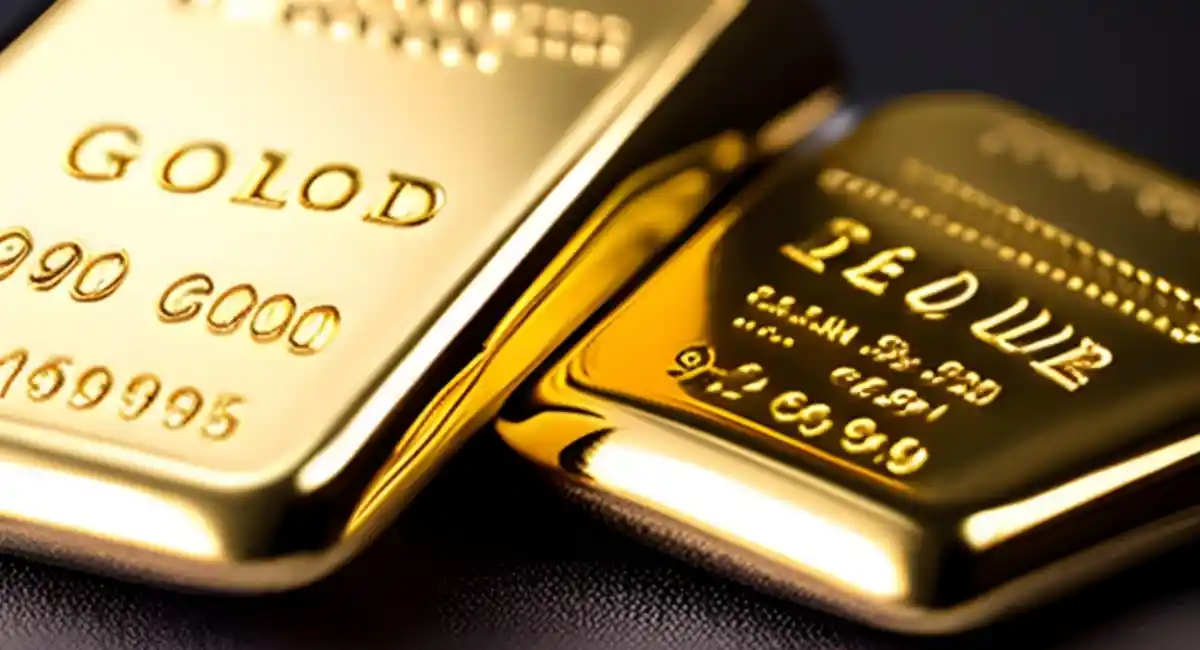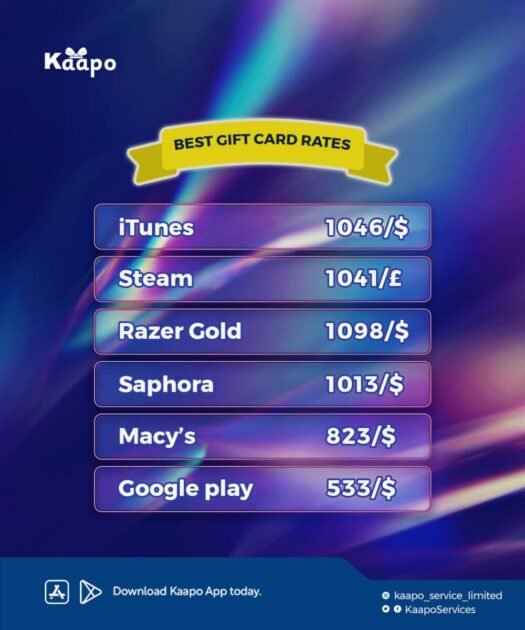There are good reasons why you should consider buying and selling gold. Many people, especially entrepreneurs, see gold as a natural way to protect themselves when the stock market goes down. And then there is a talk about banks buying gold. But are there banks that buy gold? We will get into this.
Gold has advantages beyond just its price going up. For example, it’s a physical asset that can’t be destroyed by fire, water, or even time. Unlike other things, gold doesn’t need to be taken care of, like feeding or maintenance. Another advantage is that gold doesn’t rely on someone else to keep its value. You don’t need any paper contracts to make sure gold holds its worth.
Are There Banks that Buy Gold?

No, banks do not typically buy gold, especially in the United States. Banks don’t usually accept gold because it’s difficult for them to evaluate their value. The US Central Bank, on the other hand, buys gold for a specific reason: to help keep the US dollar’s value stable.
The US Central Bank, also known as the Federal Reserve, is a crucial institution responsible for managing the country’s money and financial system. It aims to keep the economy stable by controlling inflation and supporting employment.
Gold is considered valuable and reliable worldwide, often seen as a safe-haven asset. The Central Bank wants people to trust the currency, especially during uncertain economic times; holding gold reserves is one of the ways to do this.
The Central Bank acquires gold through various methods, such as purchasing it from other countries, authorized gold dealers, or sometimes mining it domestically.
Even though the US Central Bank buys and holds gold for its monetary policies, it doesn’t buy gold from individuals or businesses. This is because the US Central Bank mainly deals with large-scale transactions and works at an institutional level.
Lastly, selling gold to the Central Bank is usually limited to countries, other central banks, and specific authorized dealers.
Do Banks Sell Gold?
The answer to this question will depend on where you live. Banks in the US sometimes sell gold, but they usually don’t talk about it openly for safety reasons. To know which banks sell gold near you, you can visit the US Mint’s website and use their dealer locator. Alternatively, you can call your bank and ask them directly.
In some countries, buying gold from banks is common, but not so much in the US. The Federal Reserve in the US doesn’t sell to individuals, only to other banks. Some banks may offer limited edition gold or silver coins, but it’s rare.
If you want to buy gold in the US, you won’t be able to get it from most banks as they don’t sell gold bullion or bars to the public. However, many reputable gold coin dealers are available online and in your local area. Some popular online dealers are GoldLine, APMEX Gold, Gold Price, Northwest Territorial Mint, Bullion Vault, Bullion Direct, among others.
How to Sell Gold to a Bank?

Selling your gold to a bank is like selling any valuable thing. To get the best price, follow these steps:
- Know Your Gold. Gold is a commodity, and its value is fixed through trading platforms and dealers. So, it’s crucial to understand what you have and how much it’s worth.
- Check with Your Bank. Contact your bank and ask if they buy gold. Inquire about their processes and requirements for selling gold.
- Keep an Eye on Prices. The price of gold can change daily, just like currency rates. Check the current gold price before selling. You can check the prices on websites like www.goldprice.org or the US Mint’s site.
- Sell to Your Bank. Once you’re ready, inform your bank about the quantity of gold you want to sell. Learn about their payment procedures. If everything works for both parties, get your gold authenticated and proceed with the transaction.
If Banks Won’t Buy Gold, Where Can You Go?

Having known that banks that buy gold are scarce, what are your other options?
-
Sell to Jewelers
A lot of high end jewelry sellers also deal in gold. So you can approach them and sell to them but make sure you only deal with reputable dealers and not rogue or dishonest ones as they could employ deceptive tactics to swap your original gold coins with fakes without you knowing and then return them to you.
You need to be very careful and discerning whenever you decide to sell your gold in order to avoid situations such as this.
-
Sell to Pawn Shops
You can try selling your gold to either a pawn shop or a jeweler. Even if you don’t sell there, they can assess the value of your gold. After getting an estimated value, use this information to set a fair price when selling online or to other buyers.
-
Sell Online
Platforms like eBay, Craigslist, and others like it allow you to sell your gold. You can also sell your gold at bullion shows or online communities and forums dedicated to gold bullion trading, but make sure you have great negotiating skills so that you can always get the best deals.
-
Check with Your Bank
Lastly, inquire with your bank if they’re interested in buying gold. In some countries, banks may buy gold if you can provide a genuine certificate of purchase.
Insider Tips to Sell Your Gold Profitably
To make profits from your gold, keep a close eye on its value after purchasing them. You can check the prices on websites like www.goldprice.org or the US Mint’s site. It’s often best to wait a few years before selling your gold because its value tends to rise over time, allowing you to earn a good profit.
- Knowing the value of gold is crucial. Stay updated with gold prices through newspapers and websites. Don’t rush to sell unless the market is doing exceptionally well. Sell when prices are favorable or when you really need the money.
- Also, keep track of your country’s currency value as gold and currency have an inverse relationship. Selling your coins when your country’s currency drops can be beneficial.
- Research and trust your instincts to determine the best time to sell, considering the demand for gold. Selling before the value drops can earn you more than your initial investment.
- Avoid selling to unreliable buyers who may try to pay you much less than your gold’s actual value. Stick to dealing with reputable retailers approved by the Better Business Bureau.
- Be cautious of scammers offering unrealistically low prices or unusual deals like free storage or delayed delivery.
- Avoid buying from telemarketers, as their prices might be higher. Gold is a very viable commodity, and if the steps above are followed appropriately, you can buy and sell gold successfully and make profit in the process. Remember, the final decision is yours, so trust your instincts despite market trends and research.
How to Buy Gold Online with a Credit Card
Buying gold online can be a profitable investment if you do it right.
- Before you start, it’s essential to research and understand the gold market. Look for reputable online dealers who offer fair prices and flexible payment methods like credit cards.
- Be careful and cautious while dealing with online dealers. Check their contact information and make sure they have a secure system for credit card payments.
- Before making any purchases, contact the vendor’s customer service to inquire about the specific items, warranties, payment methods, and return policies. Their response will reveal how trustworthy they are.
- There are two types of gold commonly traded: bullion and gold coins. Gold bullion comes in the form of coins or bars and is priced based on the amount of gold involved. Gold bars are better for experienced investors, while gold coins are more accessible for beginners.
- Keep track of the market price for gold on websites that provide daily updates. A reputable dealer will have a small mark-up above the spot price.
- Buy from trusted bullion dealers or well-known gold brands to avoid fraud. Compare prices from different stores to get the best rate.
- Keep your purchased gold in a secure place like a private vault to prevent theft and ensure safety.
- Consider buying gold in smaller quantities rather than all at once to take advantage of lower prices and avoid potential issues with some products.
The price of gold fluctuates, so don’t panic if it drops temporarily. Gold investments tend to offer long-term rewards.
Why Buy Gold With a Credit Card?
Gold is a great investment for many reasons, which might be why you’re considering buying it with a credit card. There are some advantages to doing this:
1. Speedy Payment
Unlike a check that can take several days to clear, credit card payments usually clear within one business day. It’s faster than a bank wire transfer, which requires more setup work.
2. Meeting Credit Card Minimum Spend
Some credit card signup bonuses require you to spend a certain amount within a specific period. Buying gold with your credit card can help you reach that spending goal and qualify for the bonus.
Disadvantages
However, like any investment, buying gold with a credit card also has its downsides, which you should be aware of:
3. Convenience Fees
Using a credit card to buy gold may come with a “convenience fee” of up to 4%. So, if you’re buying $5,000 worth of gold, you’d pay an additional $200 in fees.
4. Credit Card Processing Fees
Though it might be tempting to accumulate credit card rewards, the processing fees can often negate any benefits you might get from rewards, except for signup bonuses.
5. Limited Acceptance
Many gold dealers avoid accepting credit cards due to high processing fees and fraud risks. However, some dealers do accept them. Keep an eye out for potential restrictions, such as purchase limits or certain card networks not being accepted (e.g., Amex or Discover).
6. Credit Card Surcharges
Some dealers may add a surcharge of up to 4% on your order when you use a credit card to cover the processing fee they have to pay to their bank.
To avoid these surcharges and fees, you might consider paying with a personal check or a wire transfer. Additionally, some dealers may offer discounts if you choose these payment methods.
What You Need to Buy and Sell Gold
When you’re getting into the business of buying and selling gold, it’s important to be prepared with the right equipment. Here are five essential tools you’ll need:
-
Gold Testing Kit
A must-have for this business is a gold testing kit. It’s not expensive and comes with different acids for testing the gold’s carat (purity). This way, you can be sure of what you’re buying from customers.
-
Professional Jewelry Scale
Investing in a professional jewelry scale is crucial. Though it may cost more upfront, it’s worth it in the long run. Using a kitchen scale is illegal and makes your business look unprofessional. To stay on the safe side, check the scale’s accuracy daily and keep records in case you’re asked about it.
-
Magnet and File
Having a good-quality magnet is beneficial in the gold industry. It helps you identify if an item is real gold or not. Additionally, you’ll need a metal file to scrape the surface of jewelry to perform tests. Both of these tools are affordable and long-lasting.
-
Magnifier Loupe
When new items come in, check for hallmarks that indicate the gold’s carat. A magnifier loupe will make it easier to spot these marks. Sometimes, an acid test might still be necessary. For that, you can use the 10k acid from your gold testing kit. Remember to get permission from the owner before performing any tests.
-
Be Professional
If you’re feeling unsure about your skills, start by testing the jewelry you own. This will help build your confidence before customers bring in their pieces for evaluation.
Frequently Asked Questions on Banks that Buy Gold
Does Bank of America sell gold coins?
No, Bank of America and most other U.S. banks don’t sell gold coins or gold bars.
Can you sell gold coins to a bank?
Yes, you can sell gold coins to banks, but only in other countries besides the US. However, banks usually pay only the coin’s face value. It’s better to sell gold coins to a business that specializes in buying and selling gold for a fair deal.
Can I deposit gold into a bank account?
Yes, you can keep gold and silver in a bank’s safe deposit box. But remember, there are no federal laws governing these boxes. So, if your gold or silver gets stolen or damaged in the box, the bank may not compensate you.
How much gold can you buy?
You can buy as much gold bullion as you want. There are no laws limiting how much gold you can own. It all depends on what you can afford to buy.
Who are the top buyers of gold?
From 2017 to 2022, the central banks of Russia, Turkey, India, and China were the biggest buyers of gold. They purchased a significant amount of gold during that time.
Can we invest gold in bank?
Sure, but you need to contact your bank first to get accurate information on certain things like interest rates, terms, and other factors regarding this.
That’s it for the topic “banks that buy gold”. Buying and selling gold isn’t much of a big deal, the most important thing is doing your research and getting armed with the proper info before diving into the market.
As with every other thing in life, we advise you to apply a great deal of caution. Stay safe!
References
- Why Central Banks Buy Gold. Reuters
- How to Invest In Gold: 5 ways to Buy and Sell It. Bankrate
Read also: Precious Metals by Value Ranking: What You Need to Know





